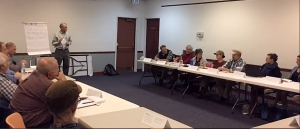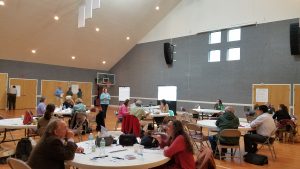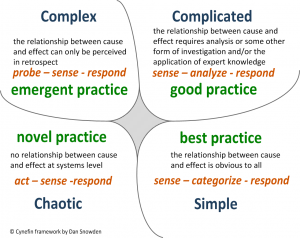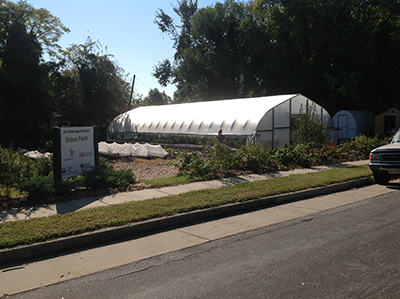By Chris Epes, Associate Extension Agent – Horticulture, Virginia Cooperative Extension, Norfolk, VA
 Think of Norfolk, Virginia and you think of a lot of things – unrelated to nutrition problems. It’s home to the world’s largest naval station. Norfolk is military. Located in the heart of Hampton Roads, Norfolk is one of the most important shipping hubs in the world. Norfolk is blue-collar. Norfolk is as urban as it gets in America.
Think of Norfolk, Virginia and you think of a lot of things – unrelated to nutrition problems. It’s home to the world’s largest naval station. Norfolk is military. Located in the heart of Hampton Roads, Norfolk is one of the most important shipping hubs in the world. Norfolk is blue-collar. Norfolk is as urban as it gets in America.
What outsiders may not know is that Norfolk has its fair share, and more, of the kinds of systemic problems that plague urban communities, in addition to essentially being ground zero for sea-level rise. Norfolk faces many challenges. Violent crime, single-income households and nutrition related disease and mortality rates in Norfolk are well above state averages. Not surprisingly, this goes hand in hand with the prevalence of fast food and convenience store-laden neighborhoods as well as food deserts in the area. Read more.




